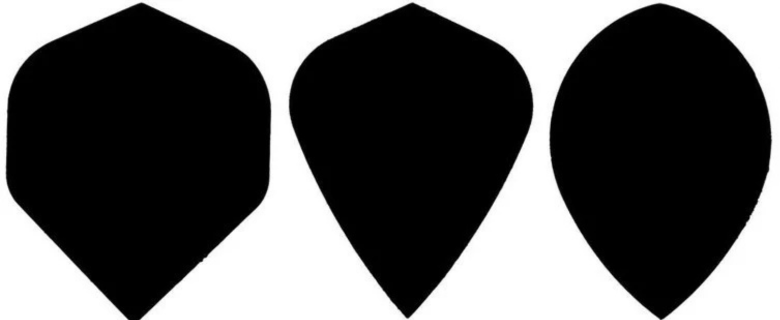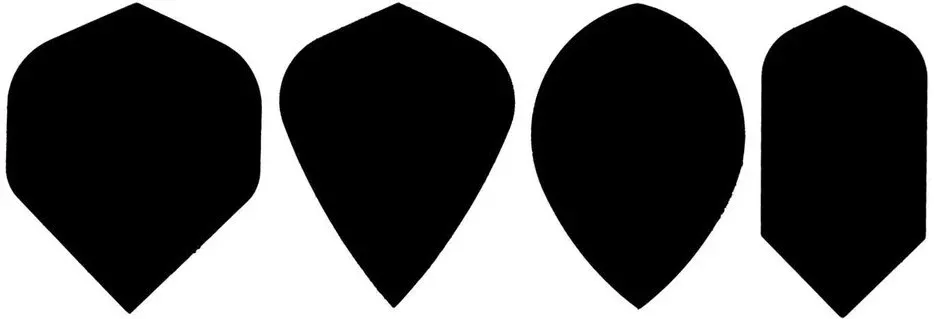Dart Flight Shapes
19-01-2023
If you have immersed yourself in darts a bit, you will soon see that there are an awful lot of different dartflights. Not only in terms of colour and design, but also the shape and size of the flights can vary a lot. But what exactly is the effect of certain shapes of dart flights? We would like to list that here for you!
The basic shapes
We won't have enough time to cover every possible type of dart flight in existence, which is why we start here with the basic shapes, on which most other flights are based or derived from. The four most common shapes of dart flights look like the picture below.
 From left to right, the flight shapes have the following names:
From left to right, the flight shapes have the following names:
Standard flights
Kite flight
Pear flight
Slim flight
As the fifth 'standard' form, there is also the so-called No. 6 flight. This looks basically the same as the Standard flight, but is slightly smaller.
Standard flight
The Standard flight is as most darters and non-darters flights are used to. It is also reminiscent of the shape at the back of an arrow at a bow and arrow, which immediately describes the function of a flight. The standard flight is of course also called 'standard', because it is a good basis for most beginners and experienced darters.
Because of its large bearing surface, this flight gives a lot of stability in the flight of the dart arrow, so that both beginners and darters who throw with a hard throw are left with a stable throw. The large surface area does mean that your throw is automatically slightly slower.
Kite Flight
The first thing to notice about the kite shape is that the top half is identical to the standard flight. Underneath, however, it pulls towards the end with rounded corners, so there is about the same amount of support area at the back while the bottom half has a lot less surface area. This means that the kite flight loses only a little stability, but retains a lot of speed in flight. This makes the kite very suitable for darters who throw slightly less hard, or who want to maintain a very fast throw.
Also when you throw with a lighter dart, the kite flight is a handy choice. With a lighter dart, you need slightly less stability to give it a straight flight, making the kite flight a good option between stability and speed.
Pear Flight
The pear flight, named after its pear shape, is again very similar to the Kite flight. But where the kite flight is a rounder version of the standard flight, the pear flight is an even rounder shape of the Kite flight. As can be expected, the pear flight has even slightly less stability but retains even more speed. Therefore, it is not practical to use it with heavier darts, but with lighter darts and for darters who want to throw quickly, a pear flight is very handy.
Slim Flight
As the name implies, the slim flight is a slim version of the standard flight. It is basically the same flight, but with the outer edge cut off. The length of the flight thus ensures a solid stability, but the shortened sides again provide less weight and thus more slightly more speed.
Besides these common flights, there are a lot of variations on these shapes. But with this so-called starter's guide at hand, you can find out about the advantages and disadvantages of most shapes and what effect they have. That way, you can decide in advance what you want, should you buy dart flights.
Not sure what works for you, but would like to check? Then you can always buy a test kit, so you can feel what works well with the most common shapes. If you want something different than what everyone else uses, why not check the options for personalised dart flights?
Do you have any other questions? Then you can always contact our Customer Service.
related blogs

Broken Dart or Shaft?

Buying darts for beginners

Everything about L-Style Flights




